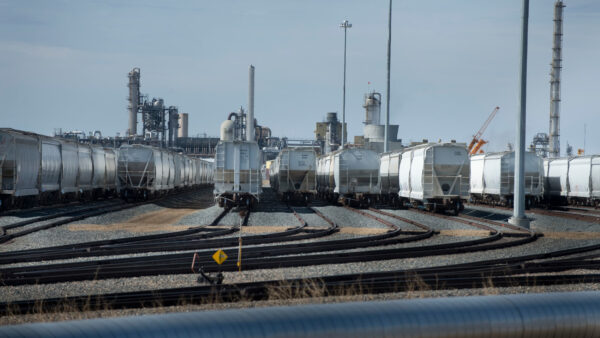As crunch survival talks wore on over Sunday (14 January) between the UK government and its embattled services provider, Carillion, the government faced different demands over how it should respond to the crisis.
Unions worried about jobs and services, but few voices were heard in support of a straight bail-out for Carillion.
Transport workers union the RMT and the opposition Labour Party both demanded that the government use the crisis to bring the affected public sector contracts in under government control to protect jobs and pensions.
And Sir Vince Cable, leader of the Liberal Democrats and former UK business secretary, said the government faces a “very big dilemma”; he urged the government not to bail Carillion out, but to let its shareholders and creditors take the losses before working out how to move essential projects and services forward.
The UK government relies on Carillion for the delivery or maintenance of rail infrastructure, schools, prisons, even homes for the military.
(The government) can’t just bail it out they’ve got to force the shareholders and indeed the creditors, the big banks, to take losses, and then the government can take responsibility for taking the contracts forward and making sure they are delivered– Vince Cable
As well as building part of the planned high-speed railway, HS2, Carillion maintains 50,000 homes for the Ministry of Defence, manages nearly 900 school buildings nationwide, is the second-largest supplier of maintenance services for Network Rail, and holds £200m worth of prison contracts, according to figures compiled by the BBC.
The company is also involved in vital public-private partnerships (PPPs) in healthcare and transport, three of which are contributing to its financial woes: the Midland Metropolitan hospital in Smethwick in the West Midlands, the Royal Liverpool University Hospital and a road in northeast Scotland, the Aberdeen Western Peripheral Route.
Unions said the priority must be to protect workers over “speculative chancers”.
“The Government should be giving clear-cut assurances to the workers who are watching the Carillion crisis play out on their TV screens this weekend. They are caught in the crossfire of a financial crisis that is not of their making and Ministers should be giving them the guarantees that RMT and other unions have been demanding,” RMT general secretary Mick Cash said in a statement Saturday (13 January).
“We have been through these corporate failures plenty of times before,” Cash said, demanding the government transfer infrastructure contracts to Network Rail, the government-owned company that owns and maintains Britain’s railway infrastructure.
“RMT has called on the Government to put in place a programme that transfers the rail infrastructure works over to Network Rail and which takes the outsourced facilities work for the train companies directly in house rather than relying on these speculative chancers,” Cash said.
Also on Saturday, Jon Trickett MP, Labour’s shadow minister for the Cabinet Office, launched a broadside against the Conservative’s “ideological project” of privatisation.
“Jobs and public services are now at risk because the Tories were blinded by their commitment to a failing ideological project of introducing the profit motive into taxpayer funded services,” Trickett said in a statement.
“Labour urges the Government to stand ready to intervene and bring these crucial public sector contracts back in-house in order to protect Carillion’s employees, pension holders and British taxpayers.”
Another union, Unite, which represents around 1,000 workers affected, called for contracts to be brought under public control, and for an urgent inquiry into why Carillion got into trouble in the first place.
“Did directors move to protect their bonuses before the financial stability of the company? Has the company mushroomed because it built its business on unrealistic undercutting and blacklisting? Why did the government continue to hand over public money to a company that had issued repeated profits warnings?” said Jim Kennedy, Unite national officer for local government.
Carillion received no support from the Liberal Democrats’ Vince Cable, who called for the company’s shareholders and creditors to take the hit.
“The government has now got a very big dilemma. It can’t allow the whole of the supply chain to collapse, it can’t allow these contracts to be unfulfilled, but at the same time it can’t possibly just bail out the company because then you have a position where the private sector is allowed to privatise profits but then the government nationalises the losses, the problem we had with the banks,” Cable told BBC Breakfast on Saturday.
“So they can’t just bail it out. They’ve got to force the shareholders and indeed the creditors, the big banks, to take losses, and then the government can take responsibility for taking the contracts forward and making sure they are delivered.”
Image: The UK government relies on Carillion for the delivery or maintenance of rail infrastructure, schools, prisons, even homes for the military (Carillion)










